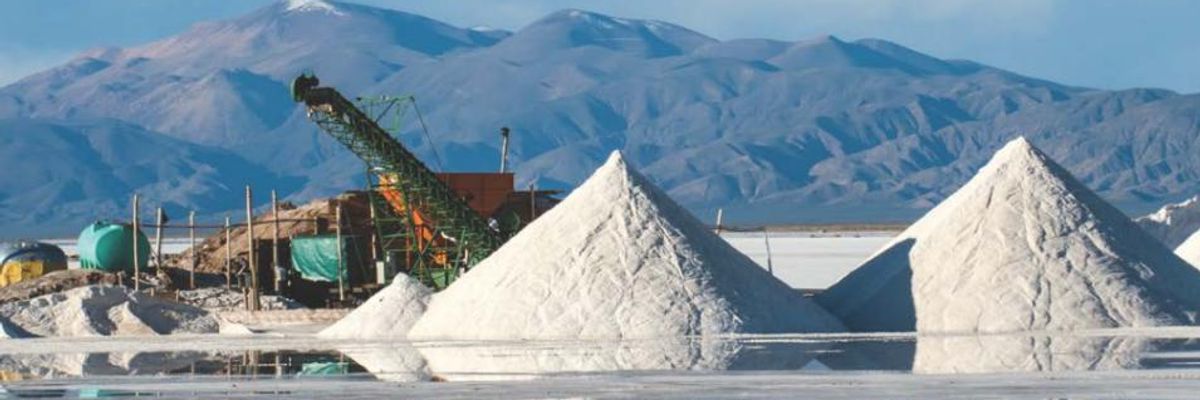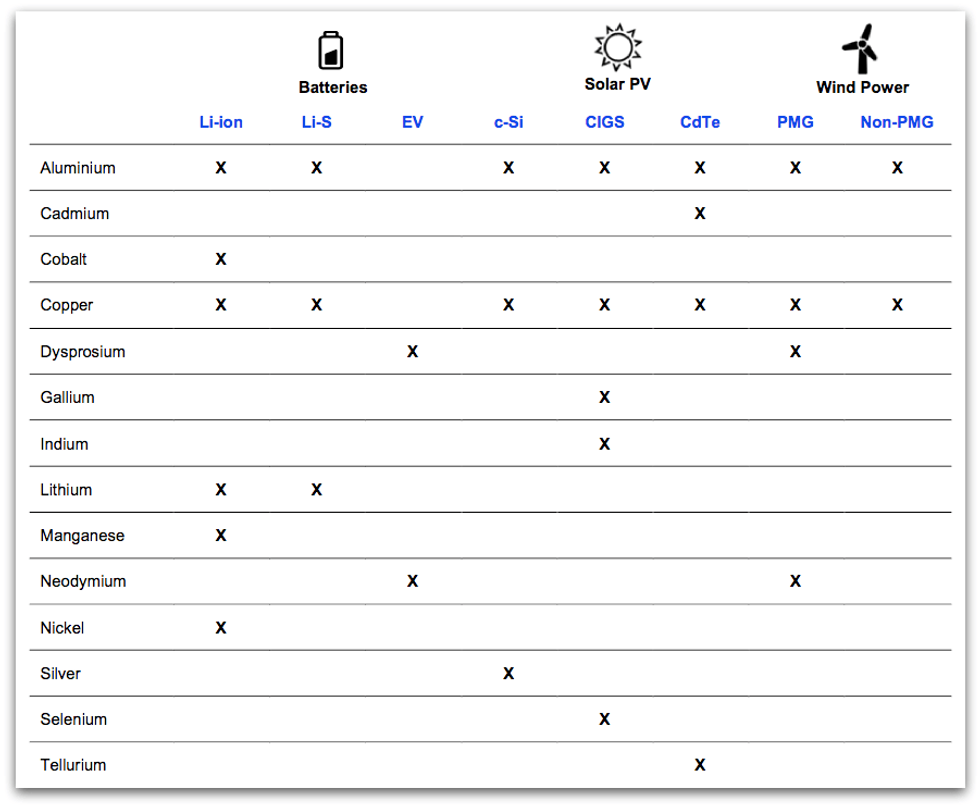A new study highlights the importance of ensuring that the global transition to 100 percent clean power--which scientists say is necessary to avert climate catastrophe--doesn't rely on dirty mining for metals used in renewable energy and storage technologies.
"As we scale up clean energy technologies in pursuit of our necessarily ambitious climate goals, we must protect community health, water, human rights, and the environment."
--Payal Sampat, Earthworks
The report, entitled Responsible Minerals Sourcing for Renewable Energy (pdf), was prepared by the Institute for Sustainable Futures (ISF) for Earthworks, as part of the U.S. nonprofit's new "Making Clean Energy Clean, Just & Equitable" initiative. It was released Wednesday.
"As we scale up clean energy technologies in pursuit of our necessarily ambitious climate goals, we must protect community health, water, human rights, and the environment," said Payal Sampat, director of Earthworks' Mining Program.
"We have an opportunity, if we act now," Sampat added, "to ensure that our emerging clean energy economy is truly clean--as well as just and equitable--and not dependent on dirty mining."
The report offers an assessment of projected demand for metals often used in electric vehicles (EV), lithium-ion batteries, wind turbines, solar photovoltaic (PV) systems, and other renewable energy infrastructure. The report also details the potential to decrease demand for certain minerals through efficiency and recycling, and identifies "hotspots" around the world "where opportunities to reduce demand and influence responsible sourcing initiatives will be most needed."
In the Democratic Republic of the Congo, where cobalt mining is common, "heavy metal contamination of air, water, and soil has led to severe health impacts for miners and surrounding communities," the report says. Additionally, "around 20 percent of cobalt from DR Congo is from artisanal and small-scale miners who work in dangerous conditions in hand-dug mines and there is extensive child labor."
"I recognize that we need materials for new technologies, but we should look for ways to get them that do not harm the environment or threaten native culture."
--Silje Karine Muotka, Norway's Sami Parliament
Pollution and human rights problems tied to extractive industries aren't limited to developing nations. In Norway, indigenous leaders and reindeer herders are fighting to block mining operations that would dump toxic waste into a protected waterway in their territory.
"The government tell us we have to sacrifice our fjords to mine copper for clean energy," said Silje Karine Muotka, a member of the indigenous Sami Parliament. "I recognize that we need materials for new technologies, but we should look for ways to get them that do not harm the environment or threaten native culture."
Elsa Dominish, senior research consultant for the the Australia-based ISF, pointed out that "if manufacturers commit to responsible sourcing this will encourage more mines to engage in responsible practices and certification." She also noted that there is "an urgent need to invest in recycling and reuse schemes to ensure the valuable metals used in these technologies are recovered, so only what is necessary is mined."
On a global scale, ISF researchers' key findings include:
- Encouraging recycling and responsible sourcing are the key strategies to promote environmental stewardship and the respect of human rights in the supply chain.
- Recycling is the most important strategy to reduce primary demand.
- Responsible sourcing is needed where supply cannot be met by recycled sources.
- The EV and battery industries have the most urgent need to avoid negative impacts in their supply chains.
The analysis focuses on 14 metals:
Of all the metals studied, copper, lithium, silver, and rare earths present the biggest challenges for substitution, efficiency, and recycling, for a variety of reasons.
As the report explains:
Copper is used in all technologies, and is difficult to substitute, as it is used for its high electrical conductivity. Lithium is challenging to substitute as it is used in the dominant battery technologies, as well as technologies predicted to be important in future, and currently only has limited recycling from batteries. Silver is used in 95 percent of PV panels, and while the industry is continuously increasing its efficiency in material use, it is not currently recycled and is technologically difficult to do so. Similarly, the rare earths neodymium and dysprosium are not currently recycled, and substitution is possible but currently nearly all EVs use this technology.
Given the challenges for those particular minerals as well as the broad environmental and human costs of current mining practices, ISF research director Sven Teske emphasized the need to prioritize improving extraction processes along with transformative climate policies.
"The responsible materials transition," said Teske, "will need to be scaled up just as ambitiously as the 100 percent renewable energy transition."

